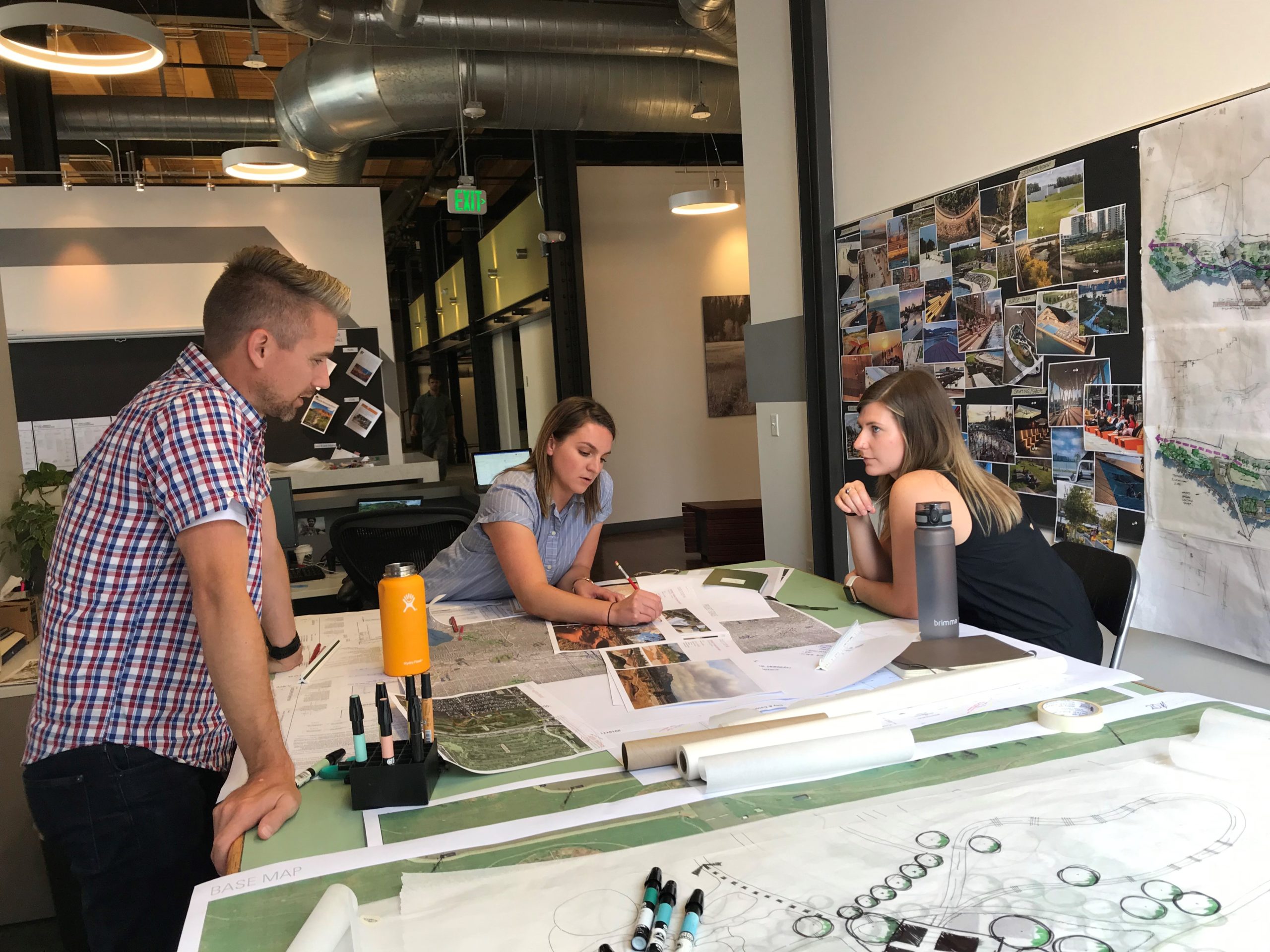By Aimee Duffy and Allyson Mendenhall, principals at landscape architecture firm Design Workshop


Mentorship looks different at each organization but one element that remains consistent is how valuable it is to employee development. The role of the mentor is to offer knowledge, stimulate professional growth, provide encouragement during challenging situations, and serve as a sounding board among other things. These relationships are mutually beneficial offering growth and learning opportunities for both parties.
At Design Workshop, calling ourselves a workshop influences the culture of our design studio. It fosters collaboration among colleagues that drives an open exchange of ideas and enthusiastic knowledge-sharing among staff of varying levels of experience and different areas of expertise. Mentorship happens organically due to our workshop culture. It happens naturally through project teams—more seasoned professionals guiding junior ones.
The firm also encourages employees to take charge of their personal and professional growth by actively seeking a mentor for learning and development from professionals with in-depth experience in areas in which a mentee is seeking to gain knowledge. It’s important not to play matchmaker with mentors and mentees; rather with our team we expect them to take the lead in identifying someone—internally or externally—with whom they can have a reciprocal relationship. Staff are nudged to get involved in local organizations and boards through which they have many opportunities to network and target potential mentors.
Mentoring should be approached as a more organic process that relies on the initiative of the individual employee. If you are seeking a stronger connection with someone, choose a mentor within your company who has perspective on the organization. If the main goal is to seek personal development and insights, then look for a mentor outside of your organization because it offers the opportunity for more open dialogue about personal and professional goals. Be intentional about your professional goals and do the necessary research and networking to find a mentor who can provide individualized guidance, leadership, feedback, and advice that you can benefit from. We believe that those who meaningfully connect with mentors become more insightful, mature, strategic and focused, leading to greater employee satisfaction, productivity and staff retention.
If you are a seasoned staff person, consider volunteering as a mentor to the next generation and sharing your lessons learned. At our firm, many of our staff members are involved in professional organizations, such as the American Planning Association, American Society of Landscape Architects, and Urban Land Institute, and regularly volunteer to mentor young professionals. Another positive way to be engaged is with your alma maters. At the firm we support our employee visits to academic programs around the country to deliver lectures, serve as visiting critics to review student work, provide portfolio reviews, volunteer on university advisory boards, and connect students to internship and employment opportunities. Mentoring goes both ways. It’s rewarding for you to share advice related to a mentee’s career progression and choices, serve as a sounding board and connect them to others in your network. Initiating mentor relationships and learning from the perspectives of students and young professionals will also serve you well.
Workplace Training | Lifelong Learning
In addition to finding a mentor, look to pursue continuous learning to advance your career. We bring this philosophy to our in-house training opportunities which adds to the natural on-the-job training our staff receive. We prepare a monthly lunch and learn where an internal expert presents a learning session on a topic determined by needs assessment. Complementing the in-house expert sessions, we also host guest experts from allied fields to present on a variety of subjects related to landscape architecture and planning. Like conference sessions, these sessions offer continuing education credits toward licensure, but with the ease and intimacy of learning among colleagues. Take advantage of learning opportunities offered by your organization. Be sure you know all the resources that are available to you as benefits. You’ll be recognized for improving your skills and developing your talents. You’ll be seen as nimble and an asset to a role which requires adaptability to an ever-changing business
environment.
It’s hard to inspire others if you are not inspired yourself. Look outside of your office for inspiration. Is there a professional organization you want to belong to? Find opportunities for speaking engagements where you can share your experience and expertise. It’s important for you to have exposure beyond the doors of where you work, and to invite outside thinking back into your workplace. Don’t forget to have some fun along the way and consider your personal development also. Humans are naturally curious. Think about what you’d like to learn or where you’d like to excel. Read books, listen to podcasts or do something outside of your normal routine to think differently. Focusing attention on mentorship and personal and professional development makes learning come to life!









